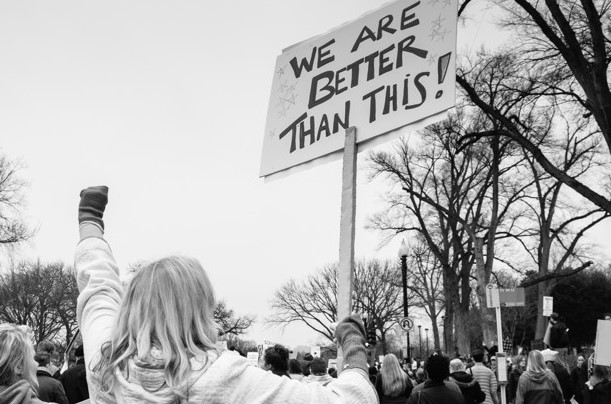The 19th century French novelist Gustave Flaubert was a stickler for style. His scrupulous devotion to literary aesthetics and painstaking attention to detail meant every word of his prose was meticulously selected and perfectly positioned.
Photo by Jerry Kiesewetter, Unsplash
Lamenting the state of the literary and social discourse of his times, Flaubert once complained to fellow writer Ivan Turgenev “Never have things of the spirit counted for so little. Never has hatred for everything great been so manifest – disdain for beauty, execration of literature. I have always tried to live in an ivory tower, but a tide of shit is beating at its walls, threatening to undermine it.”
Okay, he was obviously having a bad day. But I wonder what Flaubert would have thought of the age of the internet, where many key-board warriors regularly advance criticism and opinion in the most virulent of terms, seemingly unwilling or unable to openly debate and defend their stated position, and where anonymous online trolls appoint themselves the critics of everything and everyone.
At the close of the third millennium the World Future Society estimated there were around 50 million internet users world-wide. Today that figure is closer to 3.2 billion. Ready access to information of all kinds has ballooned exponentially over the past several decades, to the point where now every day of the year nearly half of the world’s population has immediate access to almost unlimited knowledge, opinion and literature at the press of a button. We are living in the time of a true information revolution.
But revolution of all kinds is apt to unearth both the good and the bad. Dickens famously wrote of the French Revolution “It was the best of times, it was the worst of times, it was the age of wisdom, it was the age of foolishness…” The description perhaps comfortably fits a new 21st century revolution, where a once-inaccessible trove of knowledge has been opened, but where easy, instantaneous access to untested information and opinion has sparked a popular resistance to traditional knowledge and expertise. Just as the French Revolutionaries replaced a tyrannical monarchist regime with the mob rule of the Terror, in unlocking the information vault the Internet Revolution has seemingly fuelled a populist movement that sees main-stream politics, intellectuals and the metropolitan literary elite as their mortal enemy.
When Donald Trump announced, in the lead-up to his election as United States President, “I love the poorly educated” he was no doubt intentionally courting a new world of voters empowered by the internet, increasingly sceptical of conventional wisdom and expertise and moved by a burgeoning distrust of established sources of wisdom and learning, one that undoubtedly informed the surprise Brexit decision in the UK in 2016. Trump’s dumbed-down, often mono-syllabic messages to his true believers of Middle America – Build the wall, Make America great, Lock her up – seemed all but tailor-made for the medium of Twitter, where everything worth saying can be comfortably expressed in 280 characters or fewer. It’s a world of short, pithy plugs and opinions with no room for dissent or demurrer, and no shades of grey, a world where a veritable mountain of opinion is posted with seldom a solitary word of sensible debate, a world where the best one can do to contribute is mechanically press the “like” button, or not, register a thumb up or thumb down on a distant, disconnected computer device.
As the celebrated British author and journalist Howard Jacobson recently observed, words are the means by which we escape what’s mean and narrow within us, and when there is a war on words, when people are told to use fewer, be less expressive, more narrow and stupid, they are made to feel small in themselves. According to Jacobson, a Man Booker Prize winner who last year released a satirical novella on the Trump phenomenon, simply entitled Pussy (nothing to do with four-legged felines), words are our liberation. “Everything that matters to us in our lives,” he told an ABC interviewer, “lives between the thumb up and the thumb down. There’s a whole range of complex nuance, feeling and opinion that can’t be represented by a thumb up or a thumb down.”
The revolution has come. The walls of the Bastille have fallen, and the treasure has been revealed. The only trick left is to sift the best from the worst, the wisdom from foolishness.
This article was first published in Ocean Road Magazine, Autumn 2018.













